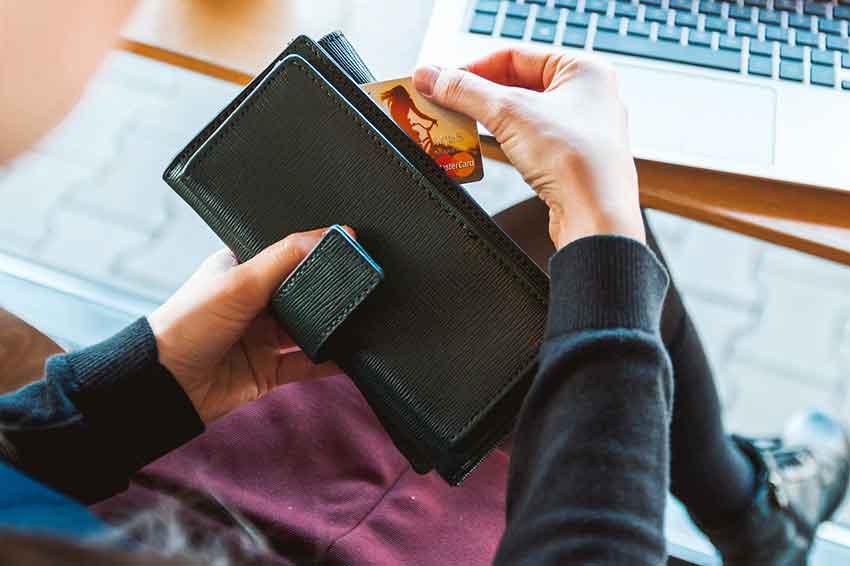Show:
Consumer Fraud: 3 Things You Should Know About It
You’ve probably heard of the term “consumer fraud” before but were never fully aware of what it meant. Consumer fraud happens whenever an individual experiences a personal or financial loss as a result of unfair, deceptive, unethical, false, or misleading business activities. Since fraudsters are always finding ways to scam you and steal your money, we are here to tell you about 3 of the most common types of consumer fraud.

1. Identity Theft
If someone steals your name, bank account number, credit card information, social security number, or any other personal information, you become a victim of identity theft. This phenomenon often occurs through data mining. These individuals often do that to steal money from your bank account, use your credit cards and health insurance, take out loans, or collect your refunds by filing tax returns.
There are a few telltale signs that can help you identify whether you’re a victim of identity theft. You need to look out for unanticipated withdrawals from your bank account, notice if any of your regular financial statements or bills have stopped showing up in your mail (fraudsters often change your address to use serviced and open monetary products in your name), or your debt collectors call you regarding debts and credit cards that you know nothing about. Unfamiliar accounts may also show up on your credit report, you may receive bills for unreceived medical treatments, and the IRS may alert you regarding multiple tax returns that have been filed in your name. Your business or the company in which you work may also suffer a data breach if you’ve been subject to identity theft.
In that case, you need to contact the companies where you suspect the fraud to have occurred, so you can report it. You also need to freeze or close all your accounts and change all your PINs and passwords. You can get free credit reports by contacting the credit bureaus and placing a fraud alert. You can also refer to the local police for help and monitoring.
2. Credit and Debit Card Fraud
You’d be a victim of credit or debit card fraud if someone finds your credit card and obtains its information or steals it to withdraw cash, buy goods, and so on. Your credit card issuer or bank may not impose a cost, while you may have a limited liability of $50, according to the Fair Credit Billing Act.
There are several occurrences that could signify credit or debit card fraud. These include being charged for things that you don’t recognize on your statement, noticing small multiple changes in the dollar amount in your account (the fraud may be trying out your credit card), or the company name linked to the charge may sound unfamiliar. You may also notice charges from places you’ve never visited, had your credit balance drop significantly all too suddenly, or have gotten a phone call that requested your credit or debit card information.
If any of this happens to you, you need to log into your account regularly and make sure to report any unusual activity that occurs in your bank account. If the bank doesn’t take action, you can always report them to the CFPB. The lawyers at Counsel Hound suggest that you take legal action against the problem resumes. Make sure to cancel or freeze your account instantly, and avoid phone calls requesting information that your bank should already have.

3. Debt Collection Scams
Some scammers and fraudsters can contact you as if they were collection agencies. They will demand that you pay for fake outstanding debts in the name of the agency. Many people, who really do have outstanding debts, may fall quite easily into this trap. You need to be especially aware if you are subject to debt collection or still haven’t paid the outstanding debt. You also need to keep in mind that even then, you still have rights. You can check out the FDCPA or the Fair Debt Collection Practices Act to learn more about these rights.
It can be hard to differentiate between a legitimate debt collector and a fraudulent one. Fortunately, there are some signs that you can look out for. For instance, scammers will not reveal information regarding the exact dollar amount of the debt that you need to pay. They will also withhold information regarding your creditor and will not mention whether you are entitled to dispute your debt. The fraudulent debt collector will not mention any type of information that allows you to check or verify their legitimacy. The fraudulent collector will also urge you to transfer your money in cash or pay using a prepaid debit card. The scammer will try to threaten you and scare you by suggesting that you may end up in jail or explaining that they are a government official. They may also tell you that they will reveal to your friends and family that you are a deadbeat. Upon communication, the scammer will try to find out more personal information about you, such as your social security number and your account number. It helps to learn about the FDCPA operating times, as they may call before or after them, which is forbidden by the legitimate legal entity.

In case of being subject to a debt collection scam, you should avoid exchanging personal information over the phone or through your email. You need to ask for the caller’s name, the company in which they work, its street address, as well as a callback number. This will likely throw them off or reveal their fraud. If they give you an actual creditor’s name, make sure to contact them and ask for more details. Ask to learn more about the nature of your debt, as well as the contracted company that’s supposed to collect your debt.
According to Investopedia, the most targeted individuals by fraudsters are college students and senior citizens. However, no one is exempted from the risk of consumer theft. Fortunately, there is a governmental institution or agency, named the CFFPB, or The Consumer Financial Protection Bureau, that helps keep consumers safe from financial fraud scams.

 Return to Previous Page
Return to Previous Page








